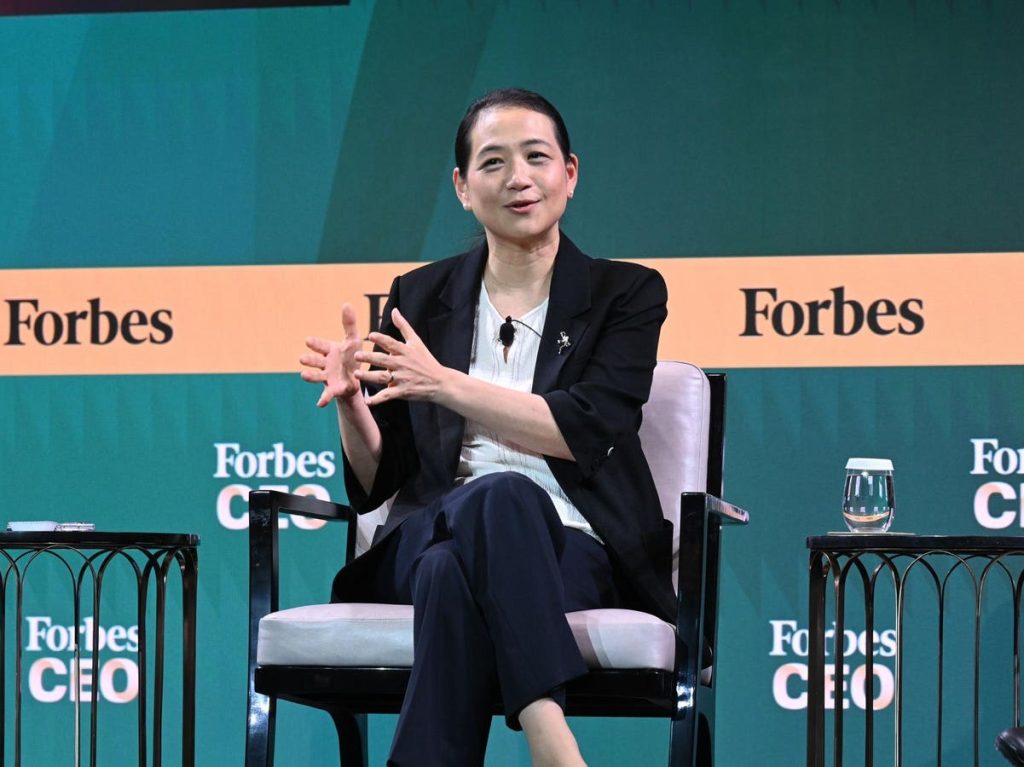Investors Underestimate Chinese Enterprise Software Growth: Insights from Gaocheng Capital’s Jing Hong
At the recent Forbes Global CEO Conference in Bangkok, Jing Hong, the founding partner of Beijing-based Gaocheng Capital, expressed strong confidence in the potential of Chinese enterprise software companies, an area where many investors have retreated due to low stock prices. Describing Gaocheng Capital as the “last man standing” among investors in this sector, Hong emphasized her belief that the firm is on track to establish itself as China’s leading enterprise Software-as-a-Service (SaaS) index. With a history of successful investments in notable companies like Meituan and Alibaba, Hong has shifted her focus to the enterprise software space, which she perceives as a significant opportunity amid China’s economic slowdown and the rise of generative AI technologies.
Hong characterized the path of Chinese enterprise SaaS companies as one of growth and recovery, suggesting that despite a phase of overexpansion in 2021 followed by a period of disappointment, these firms are now entering a phase of enlightenment. She asserts that many investors have historically underestimated the compounding growth potential of these companies, especially given their current attractive valuations. With Gaocheng Capital managing approximately $1.8 billion in assets and focusing on Series B to pre-IPO investments, Hong’s firm has strategically selected over 30 companies, including Tencent-backed Youzan Technology and SoftBank-supported Beisen Holding. Such investments have bolstered Hong’s reputation, earning her recognition in Forbes’ Midas List for three consecutive years.
Despite the relative immaturity of China’s enterprise software market compared to the U.S., Hong is optimistic about a shift in corporate attitudes towards outsourcing software development. As companies face economic pressures, there is a growing realization that software can serve as an operational tool to enhance efficiency, rather than merely a capital expenditure. Impressively, the median revenue of Gaocheng Capital’s portfolio companies has quadrupled to approximately 400 million yuan ($55 million) in the past five years, with around 80% of these firms achieving profitability or positive cash flow.
The burgeoning AI sector presents an additional layer of opportunity for Hong’s investments. She asserts that her portfolio companies are well-positioned to capitalize on AI advancements due to their technological capabilities, proprietary data, and deep industry knowledge. For instance, Beisen Holding, in which Gaocheng significantly increased its stake, has launched AI-driven recruiting services that optimize hiring costs significantly. Similarly, financial software provider Bairong has developed an AI-powered voice chatbot, which has positively impacted its revenue growth. These developments affirm Hong’s perspective that effective AI applications will help companies enhance revenue, ensure compliance, and reduce operational costs.
Although the current climate has seen a slowdown in deal activity across China’s investment landscape, Hong remains resolute. In response to previous volatility, she began advising her portfolio companies in 2021 to focus on sustainable growth, prioritize profitable product lines, and gain market share rather than chase rapid expansion. Hong’s strategy reflects a broader belief that as market conditions stabilize, investors will recognize the robust potential within China’s leading SaaS enterprises, which are generating high-quality cash returns even in challenging times.
In summary, Jing Hong’s insights reveal a significant but underestimated growth opportunity in Chinese enterprise software. As Gaocheng Capital focuses on building its portfolio amidst a shifting economic landscape, the tenacity and strategic foresight of firms like Hong’s may well pave the way for a resurgence in investor interest, particularly as the convergence of SaaS and AI continues to define the future of business operations in China. Her message underscores the importance of patience and strategic investment during periods of market uncertainty, reinforcing the long-term potential of the sector.












